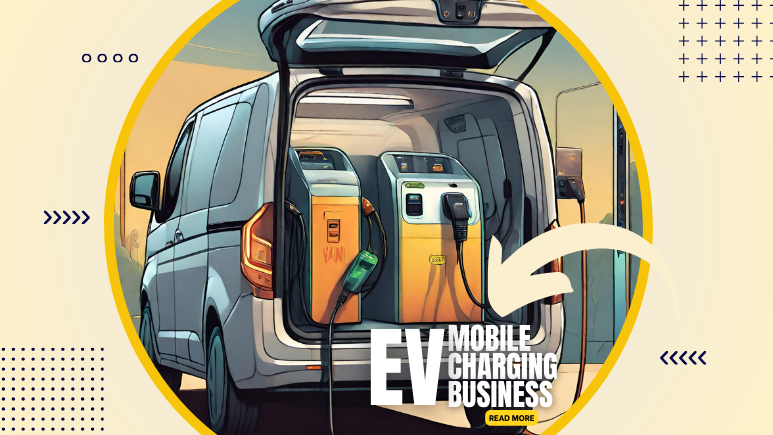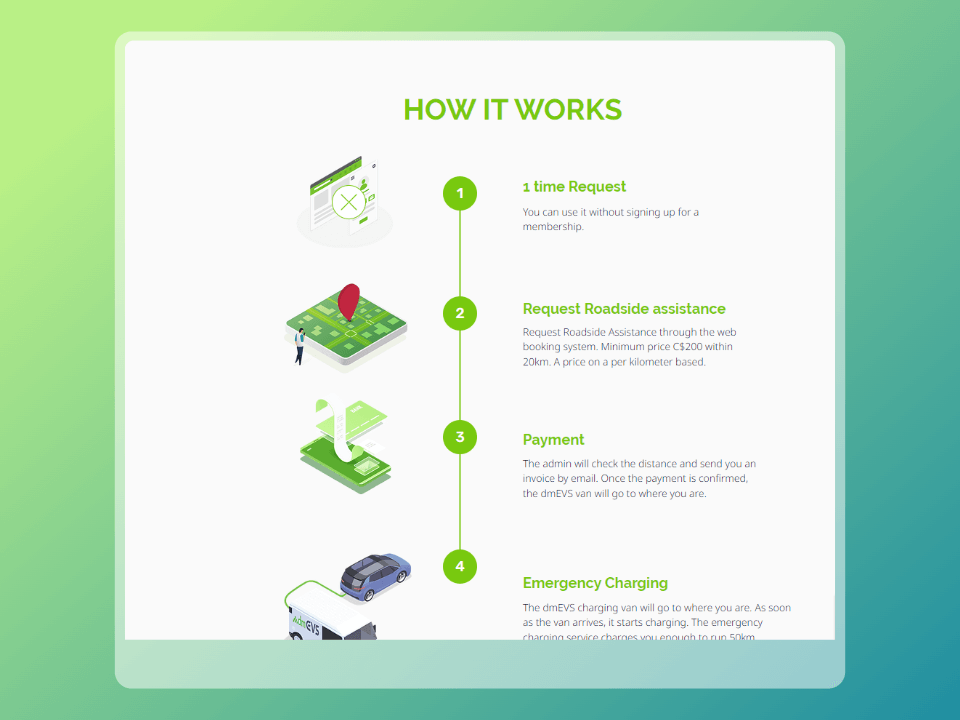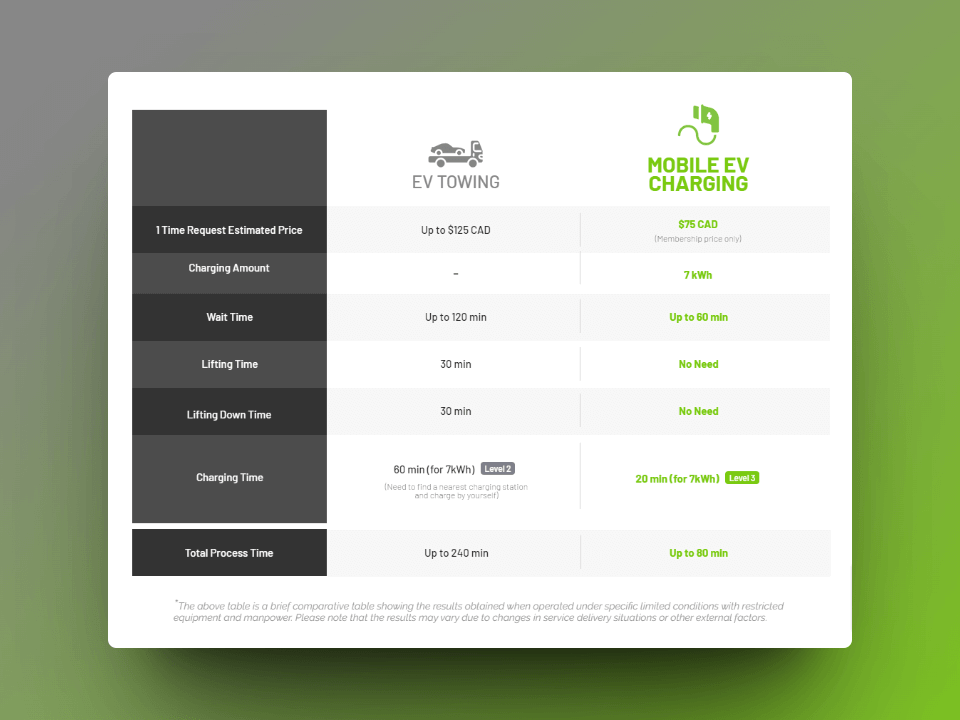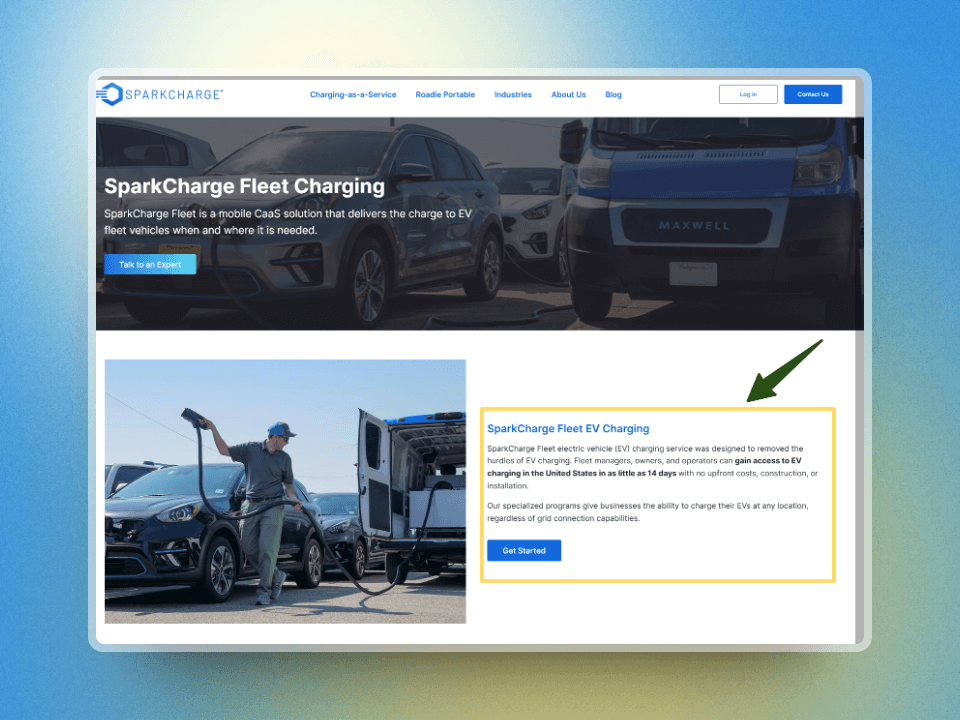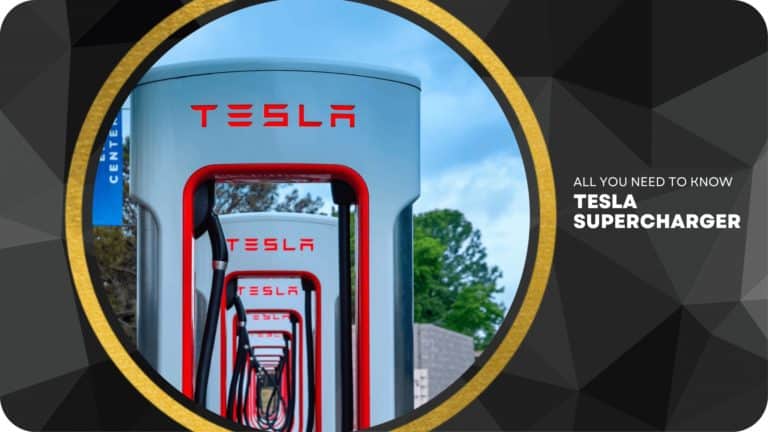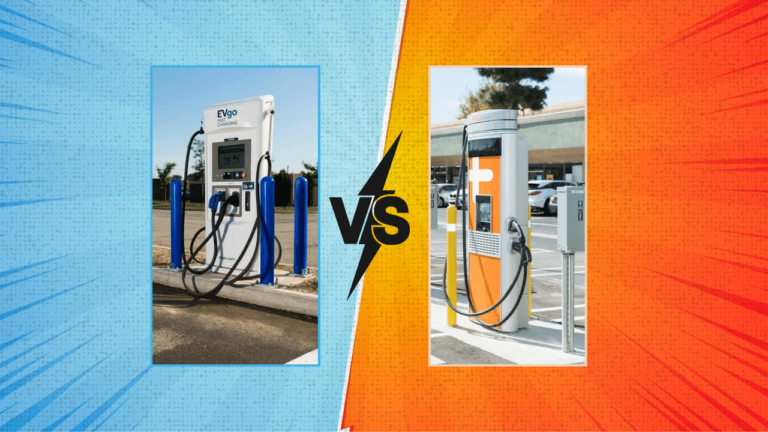Our research has focused on how to start a mobile EV charging business.
Here we have simplified the journey and process.
What you will learn from this brief:
In our study, we looked at some successful businesses in this domain and will discuss them in detail.
But first, let’s start with an overview of the simple steps to take to start an EV charging station business.
Your first and most critical step is to research the market size. Locate your target customers and check their needs. The next step is to plan accordingly and get permits. Buy or rent equipment to provide your service. Finally, market and raise awareness.
Remember, the key to success in this business is “mobile” – providing services fast and conveniently.

What is the Mobile EV Charging Business?
The mobile EV charging business is a service to EV owners in an emergency or merely for convenience.
It’s either your EV is out of charge in the middle of the road and you need immediate assistance. Or, charging on the spot if you lack access to a charging station.
There are several angles to this business.
One that immediately springs to mind is a roadside assistance service.
Let’s look at a case or business with a similar solution in this domain.

Case Study #1 - Roadside Assistance
The DMEVS is a worthwhile case study. They provide roadside assistance and charging services with a battery mobile charging system. They have a van with fast charging capabilities in the back.
They offer two solutions.
One is when an EV owner runs out of charge and needs assistance. Which, the traditional way is to tow the car to an EV public recharging destination or your home.
However, they drive with the van to your location and with their fast charging equipment they charge your car wherever you are.
Another solution is for those without charging infrastructure at home, condo, or even at work. They can come to your location and charge your car. You just need to schedule a time and location with them.
So, how is their process?
The process is simple.
Sign up for a membership plan (how many times per year)
Request roadside assistance
Emergency charging by a van comes to your location
The van is equipped with the necessary equipment and cables to recharge your vehicle.
Another option is a one-time fee, which will be more expensive.
Now let’s look at their pricing strategy.
The membership plan is about $180 per year for 2 requests.

Case Study #2 - SparkCharge
The second case study is SparkCharge. The company uses stackable batteries (Roadie portable charging units) anywhere with limited access to chargers.
The batteries are charged by a 10kW mobile charger.
Customers can also purchase a subscription-based service that offers unlimited charging for a fixed monthly fee. This allows them to recharge their batteries no matter where they are.
According to SparkCharge’s CEO, independent workers could start their businesses by offering on-demand charging. The units cost around 50 cents per mile and a customer could get a significant charge for as little as $10.
For the equipment, people who want to offer EV charging services will pay $450 per month.
SparkCharge offers several services. Let’s look at some of them.
The SparkCharge fleet service is among the services available. For businesses that want to bring EV charging anywhere in the US.
In any location, the company can provide a charging station.
The use cases can be recurring schedules, on-demand and when the charging state is low.
Another service they provide is an out-of-charge service. When the battery charge is low. They can boost your battery up to 25-50 miles of range.
Their charging equipment is level 3 fast charging.
They also have a mobile app. It makes it easy for customers to schedule a charge from anywhere at any time.
What is their pricing model?
One-time fee of $40 for a 25 kWh or $75 for a 25 kWh within 90 min. It can provide approximately 75 miles of range.

11 Action Items to Start a Mobile EV Charging Business
1. Research the Market
Look at your EV charging market where you will launch your business. Find out what your competitors (charging station business) are doing and what their strengths and weaknesses are.
Consider the number of public charging stations in the area and how many EVs are on the market. Data on the number of charging stations available per EV can be helpful if available.
2. Who is Your Customer
List all the possible customers in the area you are focusing on. Your customers could be residents or business owners.
You could also focus on a specific demographic, such as millennials or families. Finally, you could focus on a specific industry, such as retail, hospitality, or healthcare.
3. A Business Plan
The business plan should include a goal statement such as: “We aim to be the premier mobile EV charging service provider in [location], offering fast, reliable, and convenient charging solutions to EV owners across the region.”
The list of strategies should include the types of services offered, the pricing model, the type of equipment used, the marketing effort, and the customer service strategy.
The market analysis should provide data on the number of public charging stations in the area and the number of EVs in the region.
The financial forecast should include the estimated cost of setting up the business, the expected revenue, and the expected profits.
Finally, the executive summary should provide a brief overview of the business and its competitive advantages.
4. Permits
Depending on the location, permits may be required from local authorities for a mobile EV charging business.
These may include business, building, and installation of charging equipment permits.
Plus, operators may also need a license from the local fire department and utility company before starting their business.
5. Financing
Financing is a critical element.
Start-up costs can vary significantly depending on the business size and scope.
These costs can include charging equipment purchases, installation costs, permits, and marketing expenses. It is imperative to research the various financing options available, such as bank loans, government grants, and private investors.
It’s also important to understand the cash flow cycle and the potential ROI.
6. Equipment and Franchise
It’s worthwhile to look at equipment costs, franchising fees, and other start-up costs.
Equipment needed for opening a mobile EV charging business includes charging stations, cables, and other infrastructure.
Companies that offer franchises for mobile EV charging include ChargePoint, EVBox, and Juice Bar.
The cost of franchising can vary significantly. However, it typically includes a licensing fee, initial equipment costs, and ongoing operational costs such as software and maintenance.
7. Implementing an app
To manage your mobile EV charging solutions, developing an app is a necessary step.
An app can allow customers to locate charging stations and charging management, view pricing information, and pay for their charging sessions.
The app can provide valuable analytics to monitor usage patterns and track customer engagement. This will provide valuable insights to optimize the business and ensure customers have a seamless experience.
8. Partnership with Businesses
You need to partner with local businesses and organizations to make your business successful.
Partnering with local businesses such as convenience stores can increase visibility and provide additional charging locations.
As well, partnering with local governments and utility companies can help secure permits and access to power lines.
Also, partnering with car manufacturers and ride-sharing companies can promote the business and increase customer adoption.
9. Marketing and Raising Awareness
Social media and a website are essential for marketing a successful mobile EV charging business.
With these platforms, you can promote your services and special offers, as well as provide timely updates.
Besides that, you can engage with local media and attend community events.
Partnerships with local businesses, governments, and utility companies can also build trust and credibility in the community.
Finally, you can create online and offline campaigns to generate leads and increase customer engagement.
10. Keep in Touch with Trends and Statistics
Keep up with EV charging industry trends and statistics to run an effective mobile EV charging business.
EV owners, types of EVs purchased, and charging station locations are all things to watch.
It’s also helpful to stay on top of government regulations, local incentives, and utility rates.
Knowing the latest technologies in the industry can help you stay ahead of your competitors.
EV data can give you valuable insights into consumer preferences, local market trends, and local habits.
By using this data, you can pick the most appropriate charging stations and locations, set competitive pricing, and optimize marketing.
11. Focus on the customer experience
Customers want fast, easy, and convenient service. When customers can access EV charging stations quickly and easily, they’re more likely to use the service.

Is Mobile EV Charging Worth It? (pros, cons, pricing)
Mobile EV charging is a relatively new concept.
We are tapping into an emerging market, and it’s an early, but It is a fast-growing market.
Looking for some pros…
Let’s look at some dense areas in bigger cities.
Condos or apartments in the area might not all have charging facilities, so a mobile EV services business could provide on-demand or stationary charging vans with level 3 support. If it’s priced right, it’ll attract more people, so they don’t have to think about it.
Another service is emergency battery charging, which you can provide once or twice a year for a fee.
Another area is for events and organizations that don’t have charging infrastructure for guests and customers. This service can be offered at events, conferences, concerts, and other events where attendees have limited charging access.
You can also offer this service to business customers who need a temporary charging solution. This can provide an additional revenue stream for your business. This could also help you build relationships with potential customers, as they are often more likely to remember a business that provides them with helpful service.
Now let’s go deep into the cons…
The majority of people have access to electricity at home, so they are less likely to run out of batteries or need it somewhere else. So maybe the market for mobile charging services is small yet.
Some argue that the business model is unsustainable. You need enough EV owners and businesses to make money.
Others also argue that mobile charging will become more expensive and time-consuming. And moving electricity around isn’t sustainable.
In terms of the pricing model that most suits this business…
Some pricing models are:
Paid charging for a few services that you can get
Subscription-based in which you pay annually or monthly to get certain service

